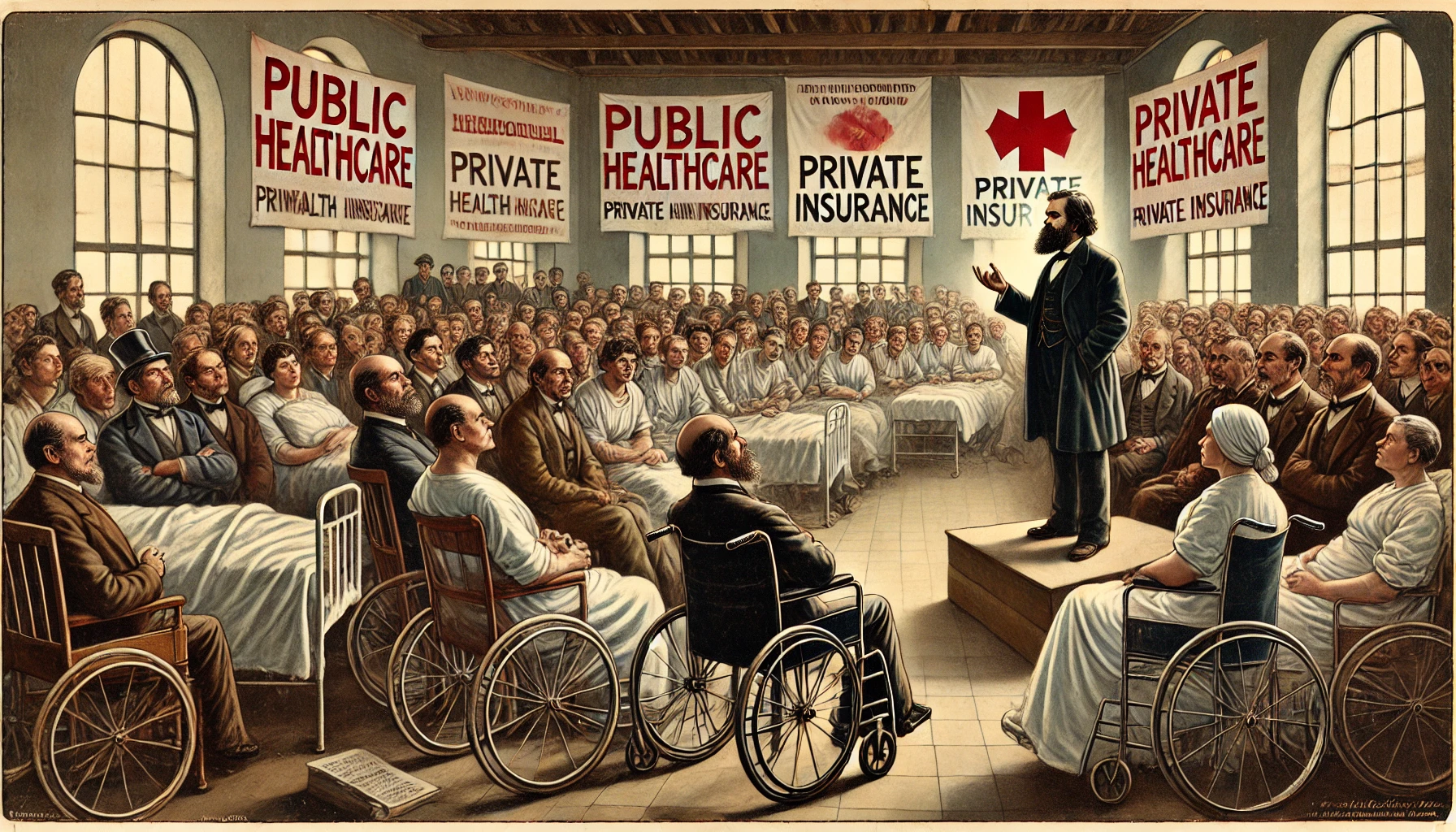The Privatized Health Insurance Dilemma: Why Marxists Target Capitalism in Healthcare
The debate over healthcare reform is one of the most contentious issues in modern politics, and it has drawn sharp ideological lines. Among the most vocal critics of privatized health insurance are Marxists, who argue that for-profit healthcare systems epitomize the inequities of capitalism. These critics believe private health insurance prioritizes profit over people, creating a system that is fundamentally incompatible with the principles of equity and human dignity. For Marxists, dismantling private health insurance is not just a step toward better healthcare—it’s a necessary blow to capitalism itself.
Private Health Insurance: A Capitalist Contradiction
From a Marxist perspective, private health insurance is a textbook example of how capitalism turns essential services into commodities. Rather than focusing on the health and well-being of individuals, private insurers operate within a profit-driven model. Premiums, deductibles, and claim denials ensure that the wealthy receive superior care while low-income individuals are often left with substandard options or no coverage at all.
The result is a two-tiered system, one in which economic status determines access to life-saving treatments. For Marxists, this is a glaring contradiction of capitalism: the system purports to reward innovation and efficiency but ultimately creates barriers for the most vulnerable. Health, they argue, should not be a privilege reserved for those who can afford it, but a fundamental human right guaranteed to all.
The Influence of Marxist Ideology on Healthcare Activism
Marxist ideology asserts that healthcare is a public good that should be managed collectively rather than left to market forces. This belief has shaped the rhetoric and actions of contemporary activists. In their eyes, private health insurance represents a structural injustice that perpetuates inequality. High administrative costs, wasteful practices, and profit margins further solidify the argument that private insurance is inherently exploitative.
Luigi Mangione, a controversial figure whose actions sparked both outrage and debate, is a stark example of how far some are willing to go to challenge the system. Mangione’s murder of UnitedHealthcare CEO Brian Thompson, while universally condemned for its violence, has also been framed by certain online Marxist communities as a desperate reaction to the failures of privatized healthcare. Social media platforms have seen an influx of posts dissecting his actions, with some users labeling him a misguided but symbolic figure in the fight against capitalist exploitation.
Social Media as a Battleground
Social media has amplified Marxist critiques of private health insurance, creating a digital battleground for ideological warfare. Hashtags like #HealthcareForAll and #EndPrivateInsurance have been co-opted to spread Marxist-inspired messages. Some users explicitly link these arguments to Luigi Mangione’s actions, portraying him as a byproduct of a broken system that pushed people to extremes.
Such rhetoric, while controversial, highlights the intensity of the opposition to private insurance. For Marxists, every denial of coverage or exorbitant premium represents another example of the system’s inherent failure. These stories, when shared widely on platforms like Twitter and Reddit, fuel calls for systemic change and lend emotional weight to their critique.
Alternatives: A Socialist Vision for Healthcare
Marxists envision a healthcare system free from the constraints of profit motives. Instead of private insurers, they advocate for a single-payer system funded by public taxes and managed by the state. This model, proponents argue, would eliminate inefficiencies and ensure that all citizens receive equitable care, regardless of income. Countries like Canada and the UK are frequently cited as examples of how public healthcare systems can achieve better outcomes while reducing costs.
However, transitioning to such a model in the United States or other heavily privatized systems would require dismantling powerful institutions entrenched in the status quo. The healthcare industry, including private insurers, wields immense political influence, often resisting reforms that threaten profitability. For Marxists, this resistance only reinforces their view that capitalism prioritizes profit over people.
Challenges and Criticisms
The Marxist critique of private health insurance is not without its challenges. Critics argue that state-run systems, while equitable, often suffer from inefficiencies, long wait times, and bureaucratic red tape. Additionally, the political feasibility of transitioning to a single-payer system remains uncertain, particularly in countries where free-market ideology dominates public discourse.
Moreover, the actions of individuals like Luigi Mangione complicate the movement’s goals. While many Marxists disavow violence, Mangione’s case has provided opponents with a weapon to discredit the broader critique of private insurance. This underscores the delicate balance between radical critique and actionable reform.
Conclusion: The Fight Against Privatized Healthcare
The Marxist opposition to private health insurance stems from a deeply rooted belief in equity and human rights. By framing healthcare as a public good rather than a commodity, Marxists challenge the very foundation of for-profit insurance systems. While their critiques have gained traction in online spaces and progressive circles, the path to systemic change is fraught with political, economic, and social hurdles.
Figures like Luigi Mangione, though polarizing, highlight the desperation and anger felt by those who see the current system as irredeemably broken. Whether through legislative reform or grassroots activism, the fight against private health insurance continues to shape debates about the future of healthcare. For Marxists, the ultimate goal remains clear: a system that values human life over corporate profits.
Originally posted 2024-07-23 09:47:45.



